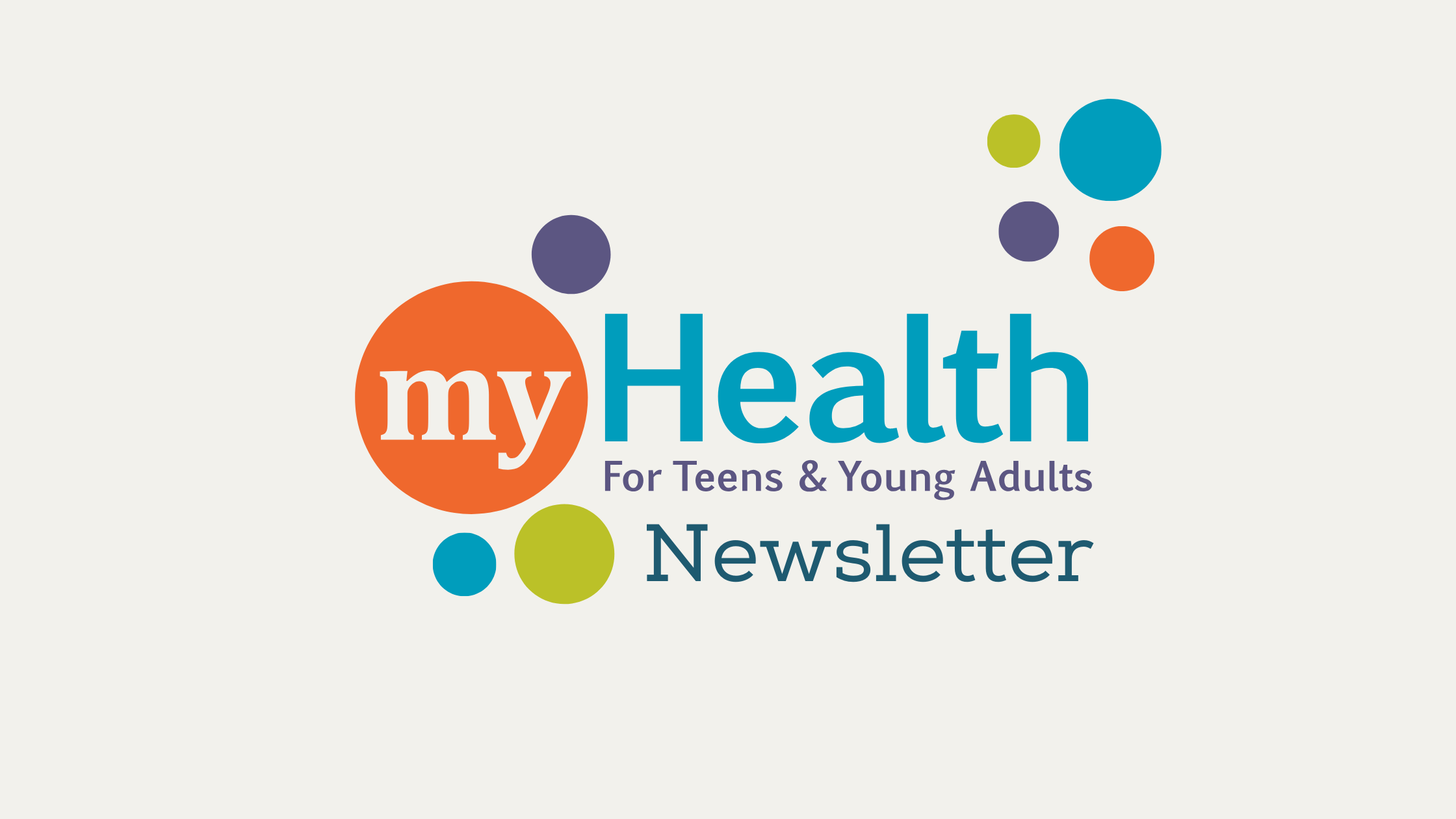
Stay up to date with the goings on at myHealth! Click the button below to view the June 2024 newsletter.

Stay up to date with the goings on at myHealth! Click the button below to view the June 2024 newsletter.
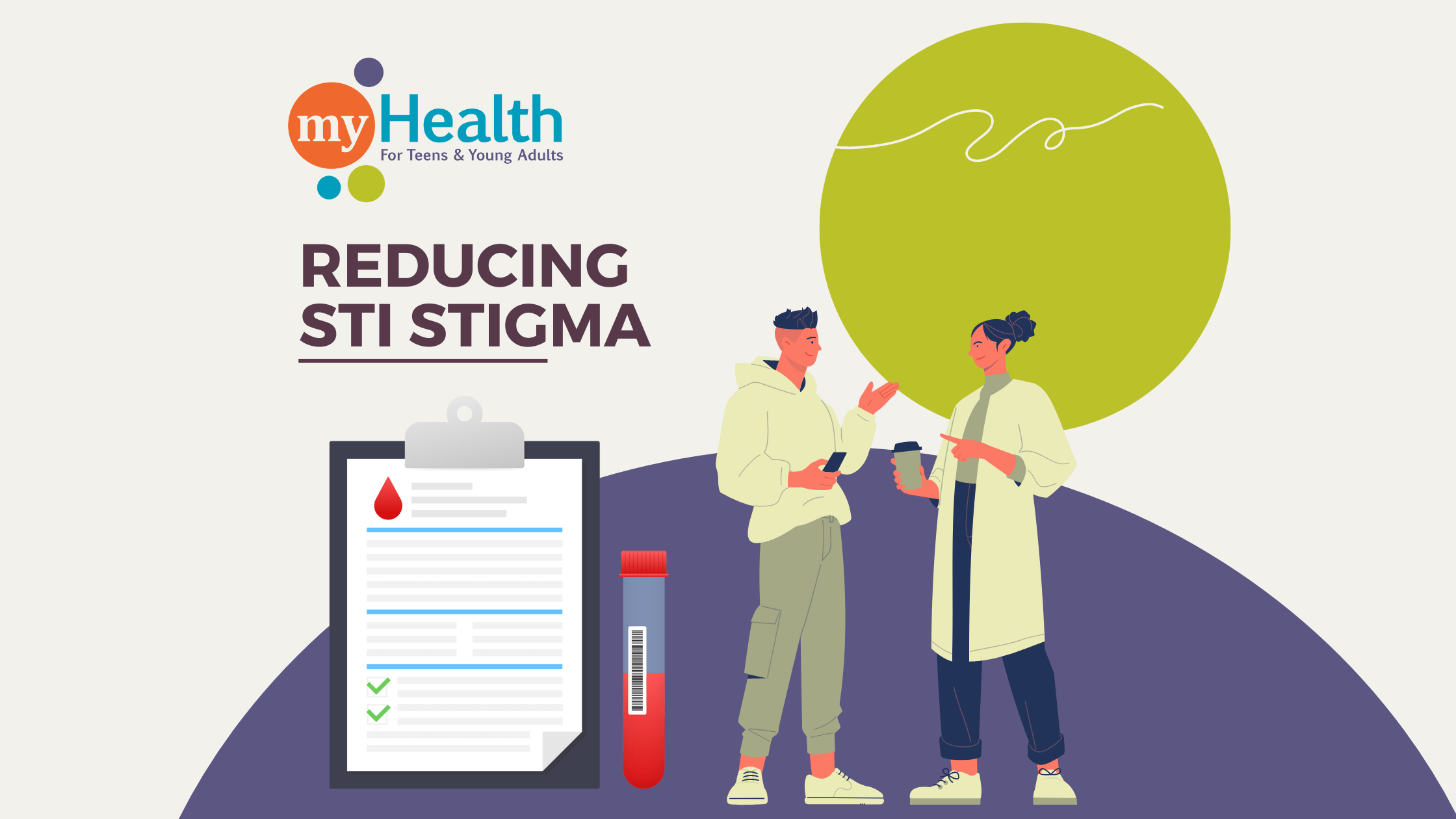
Getting a Sexually Transmitted Infection (STI) or even worrying about getting an STI can be a stressful experience. However, getting an STI isn’t a moral failing any more than getting any other virus or bacteria. Sexual intimacy is a normal part of life for most people, and whether you’ve had sex one time or a thousand times, it is possible to get an STI.
You are not less important or less clean if you get an STI. What’s important is knowing your status by testing and understanding what to do with that information.
An important part of reducing STI stigma is treating STIs like any part of your health. Empower yourself with knowledge about reducing risk, testing, and how STIs work.
If you are at risk of getting an STI, there are simple steps you can take to reduce your risk. This lets you take charge of your health without changing your lifestyle.
Sexual health isn’t an individual matter. It’s important not only to test, but to communicate with each partner you have. Talk about the last time you got tested, your intent to test in the future, and any diagnoses that are relevant to your situation.
There are some STIs, for example, that cannot be cured that are important to discuss. Click here to hear directly from a myHealth Junior Board member’s experience with herpes and reducing the stigma that can come with it.
When other people talk about sexual health, listen to them! Telling our stories about sexual health is an important part of reducing stigma around STIs. Make yourself comfortable both sharing and receiving these stories. Even a little bit of communication makes a difference.
It’s easy to know your status. myHealth’s STI testing services are offered in a no-judgment environment that’s accessible to everyone in our age range.
If you need a routine screening, walk into the clinic and a nurse will help you.
You’ll check in with one of our front desk staff members, who will help you with paperwork and understanding your confidentiality. They will pass your information on to a nurse.
The nurse will take you back to a private room to discuss your current sexual health with you, helping you understand your risk of STIs, and decide which tests make sense for you. Next, you’ll go to the lab. You may leave a urine sample to be sent out to test for chlamydia and gonorrhea. You may complete rapid HIV and syphilis tests, done via a quick and easy prick of your finger. In some cases, you may also swab your throat or rectal cavity to provide additional samples to test.
If you get rapid tests done, you’ll wait a few minutes for the results. If you do not, the nurse and front desk staff will wish you a great day!
If you think you’ve been exposed to an STI or have a symptom of an STI or other condition related to your sexual organs, just call 952-474-3251 to schedule a visit with a health care provider who can help you.
When you visit one of our doctors or nurse practitioners, they will be able to test you for a wider variety of infections, including BV, trichomoniasis, yeast, and urinary tract infections (UTIs).
They can also perform an exam to confirm whether your symptoms require treatment.
Many common STIs are easily treatable (e.g. Chlamydia, Gonorrhea); others are very manageable (e.g. HIV, Herpes). If you get an STI, don’t worry: your health care provider has seen many, many people have the same experience as you. They know how to help you!
If an STI test comes back positive, you’ll return to the clinic for treatment. At myHealth, treatment is simple and confidential. Even if you got tested somewhere else, you can come to myHealth for treatment without having to jump through extra hoops.
Did you know one of the reasons myHealth was founded as West Suburban Teen Clinic back in 1972 was to combat a rise in gonorrhea in our community? We’ve been fighting STIs and STI stigma from the start!
STIs are like a lot of other viruses: they don’t discriminate, and they don’t like to go away. In the past twenty years, the most common STIs are all on the rise. Here’s a chart that shows a few of them.
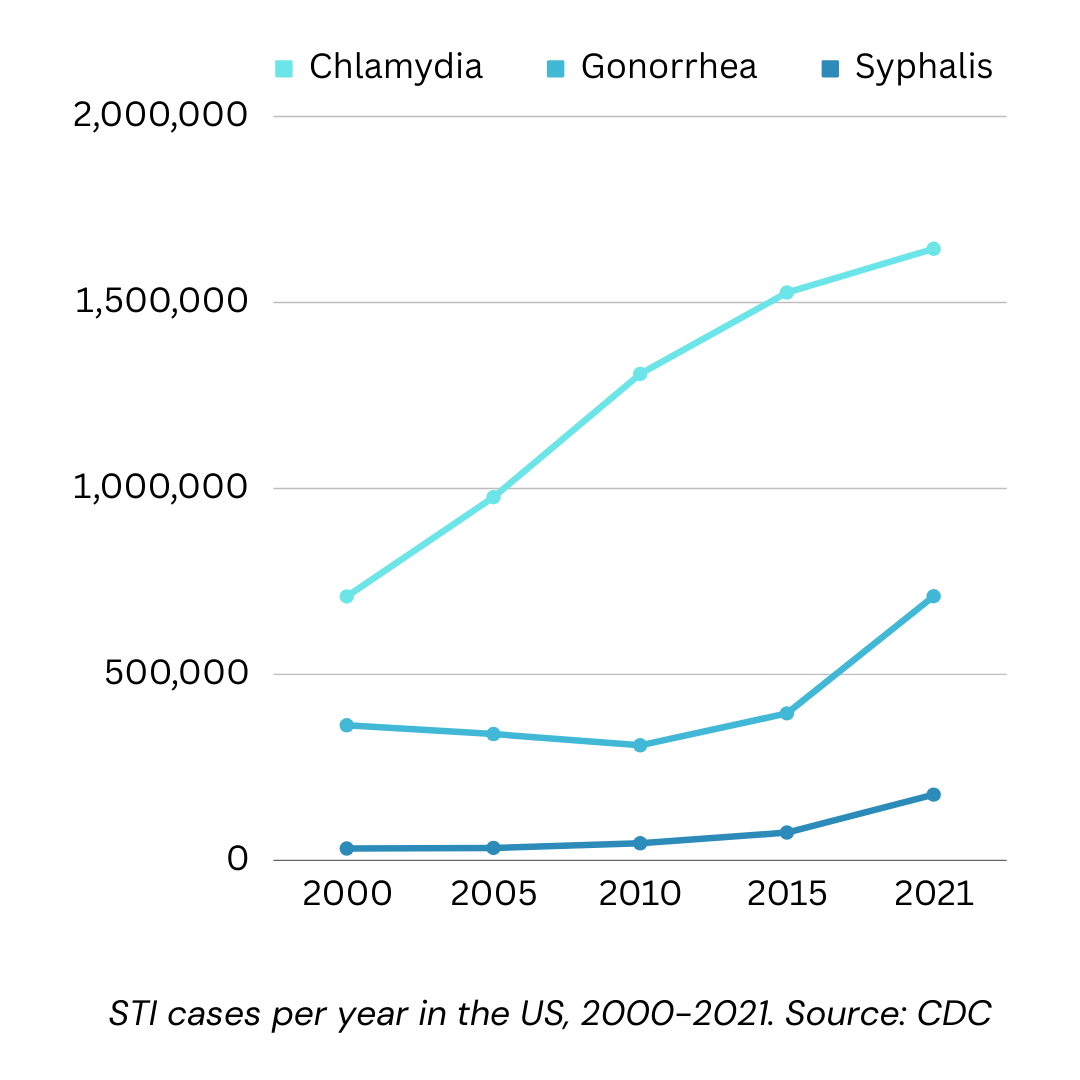
myHealth is committed to educating young people about STIs, STI risk, and STI prevention. If you ever need zero-judgment care, you can count on myHealth for confidential and affordable services. Don’t know your status? We hope to help you know very soon!
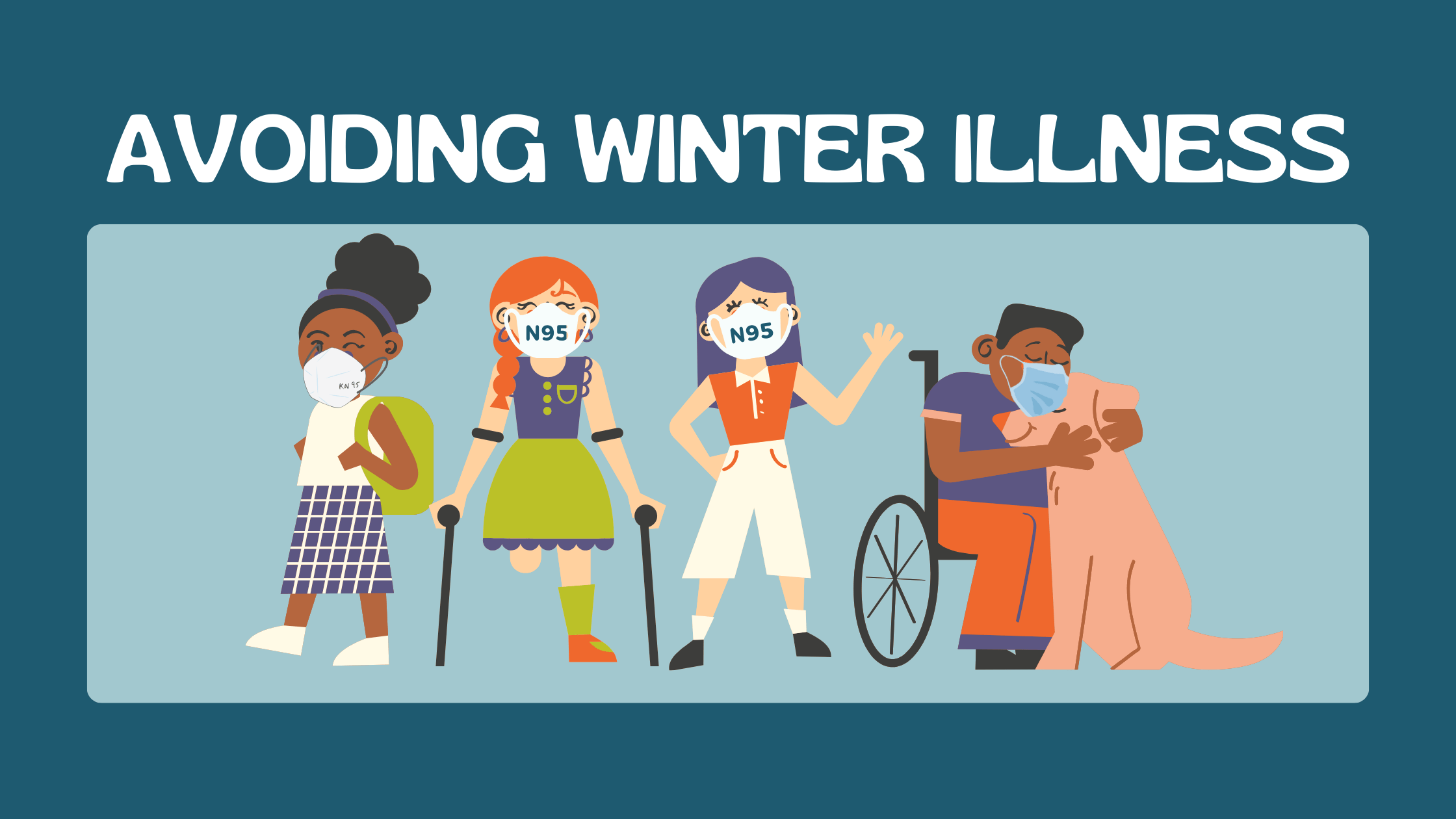
With holiday season gatherings, spending more time indoors as temperatures drop, and the rise of respiratory illnesses, winters in Minnesota can be tough on the body! It is a great idea to take some extra steps to keeping yourself and your community safe. Here are five tools you can add to your repertoire to reduce the time you and your loved ones stay inside recovering from illnesses.
Handwashing is a tool that we can use year-round to reduce the risk of illnesses… and winter is definitely a time to continue those practices! Effective handwashing typically lasts about 20 seconds.
Wearing a well-fitting mask is still one of the most valuable ways to keep oneself and others safe from airborne respiratory illnesses. Some viruses can stay in the air like smoke for long periods of time, and by wearing a mask a person can limit how much of the shared air they breathe in.
N95 masks offer the most protection, but even a simple surgical mask can be effective in preventing infections.
It is not too late to get a flu shot, and we have them available at myHealth! It is also recommended that anyone get an updated COVID-19 vaccine. This isn’t a booster, but a new version of the vaccine that’s updated for the latest variants of COVID-19 such as XBB.1.5 and JN.1. If you were vaccinated before September 2023, it’s probably time to get an update! These updated vaccines reduce your chance of getting COVID-19 and reduces the severity of your symptoms if you do become infected with the virus.
If you are concerned about getting sick, consider limiting the number of events you attend. For example, if you’re counting down the days before a vacation, you might choose to cancel events or gatherings beforehand that involve exposure to many people.
Sometimes despite all our efforts, we still get sick. Whether it’s a sore throat, a runny nose, a fever, or a positive COVID-19 test, staying home when experiencing any illness is helpful for recovery, and respectful to your community. What is just a cold for one person could lead to serious illness in another. The quicker we are to stay home, the less likely it is to infect others. The more people who stay home when sick, the less like you are to get sick in return!
Not every method of reducing transmission of viruses may seem appropriate to your situation, but all of them are important tools to have ready to control the spread of illnesses. Your work of prevention doesn’t just benefit you, but the whole community. Immune-compromised, disabled, or otherwise vulnerable people have the most to lose to winter viruses and benefit greatly from our vigilance. If you have any questions about the transmissions of disease, you can always call myHealth at 952-474-3251 and ask to speak to a nurse.
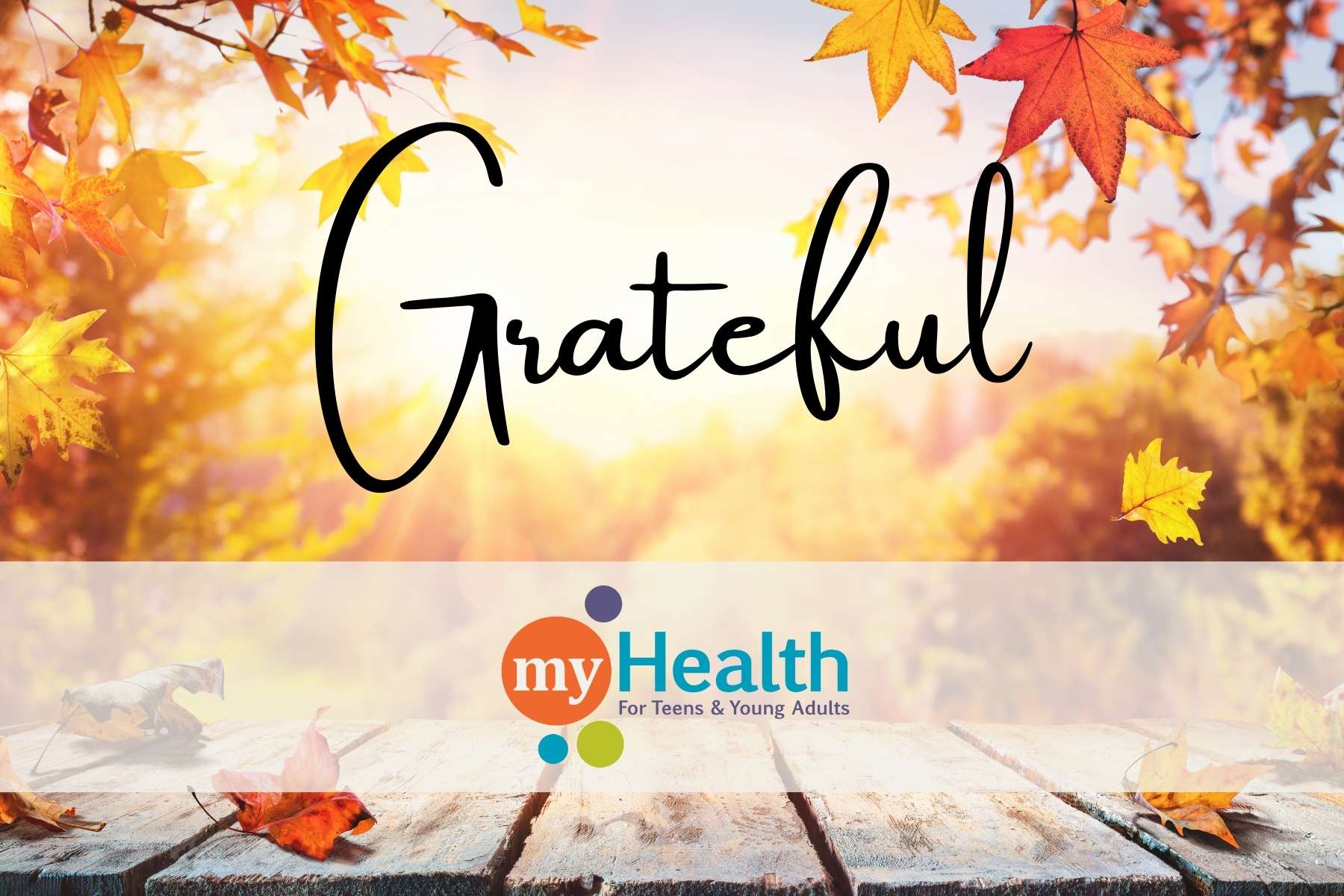
To our Community,
As a friend of myHealth, you know the services we provide are unique and important:
Each year, myHealth provides over 1,100 clients with low-cost medical services in over 4,200 visits. Our clients consistently report we meet their needs, and they feel welcomed and respected when seeing a myHealth healthcare provider. Annually in the community, our health educators present to more than 15,000 young people, adults working with youth, parents, and community partners and provide information on a wide variety of health topics critical to the ages we serve.
We cannot say thank you enough to the people who sponsor myHealth in any and every way. Your donation of time or money has enriched the lives of the young people who come to us in their moments of vulnerability and need.
If you are considering a year-end gift, click the donate button below.
With gratitude on behalf of our clients,
The Staff at myHealth for Teens & Young Adults
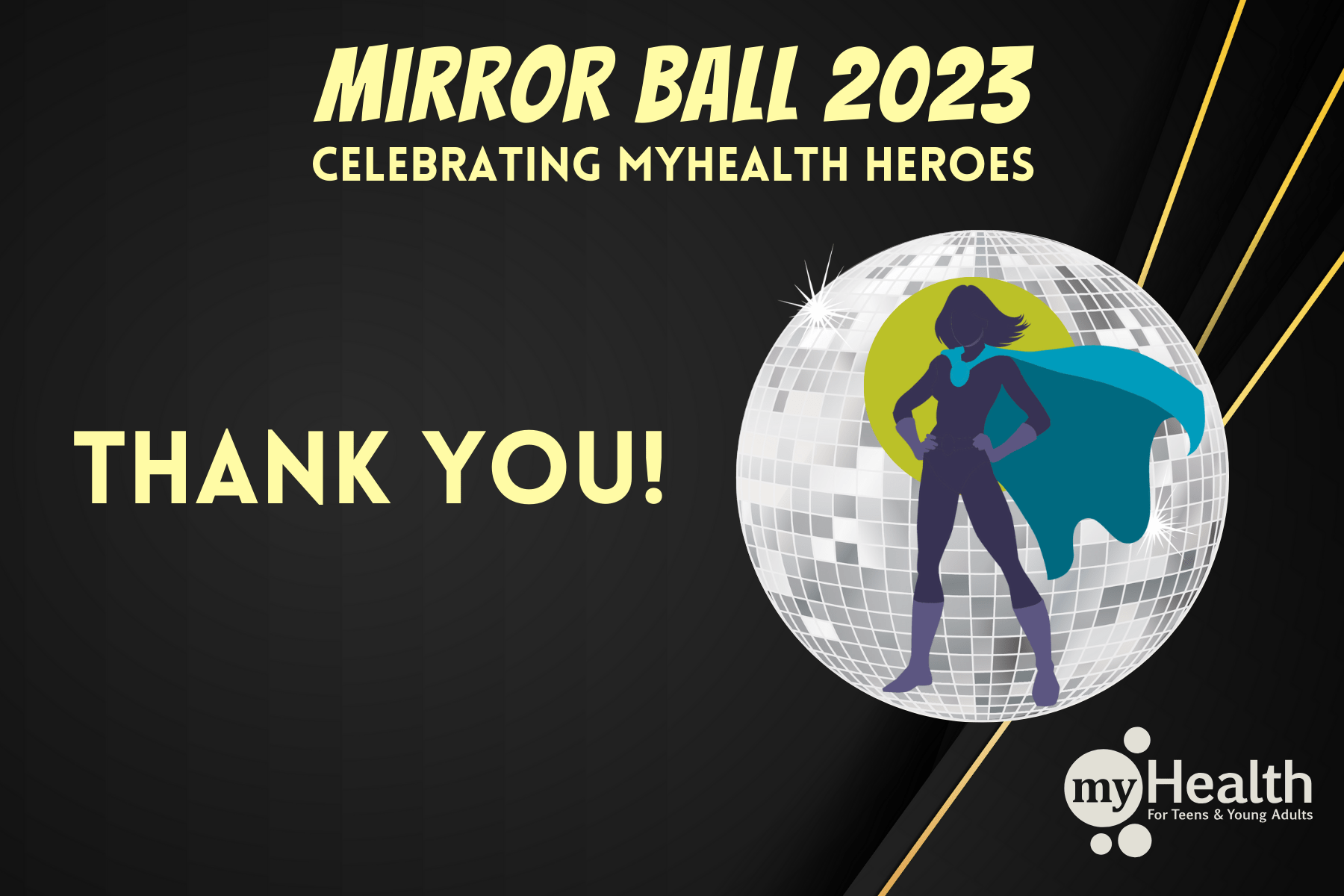
Because of your generosity, we surpassed our goal of raising $100,000 at this year’s gala. Your contribution will provide access to services, treatment, and resources that young people in need otherwise couldn’t afford.
You stepped up for a good cause and gave us amazing items for our silent and live auction. Every year we are blown away by your generosity and creativity. THANK YOU!
Just by coming, you showed your commitment to the cause of providing health care and education to youth. Thank you for making our event so fun.
Thank you for participating in the live and silent auctions. The friendly battle of bidding was so much fun – and is going to make a genuine difference to myHealth and its clients.
Some of you chose to give above and beyond at the gala, and we were so humbled by your giving. Each donation is being invested directly into our work, and we couldn’t thank you enough.
We love ya, our dear volunteers! You make sure the night runs smoothly. It was so great to see returning volunteers and meet new ones excited to invest in myHealth’s mission. Your gift of time made a difference to us.
Our theme this year was myHealth Heroes. That’s you, myHealth staff! You choose to work at an organization that can’t pay you as much as a big healthcare system, but you decided this work was worth your time and passion. Thank you for all the amazing work you do to ensure that myHealth clients get all the care they need, whether it’s in the clinic, in the community, in a therapy session, or in the office. Thank you for being health care heroes; you are genuinely appreciated.
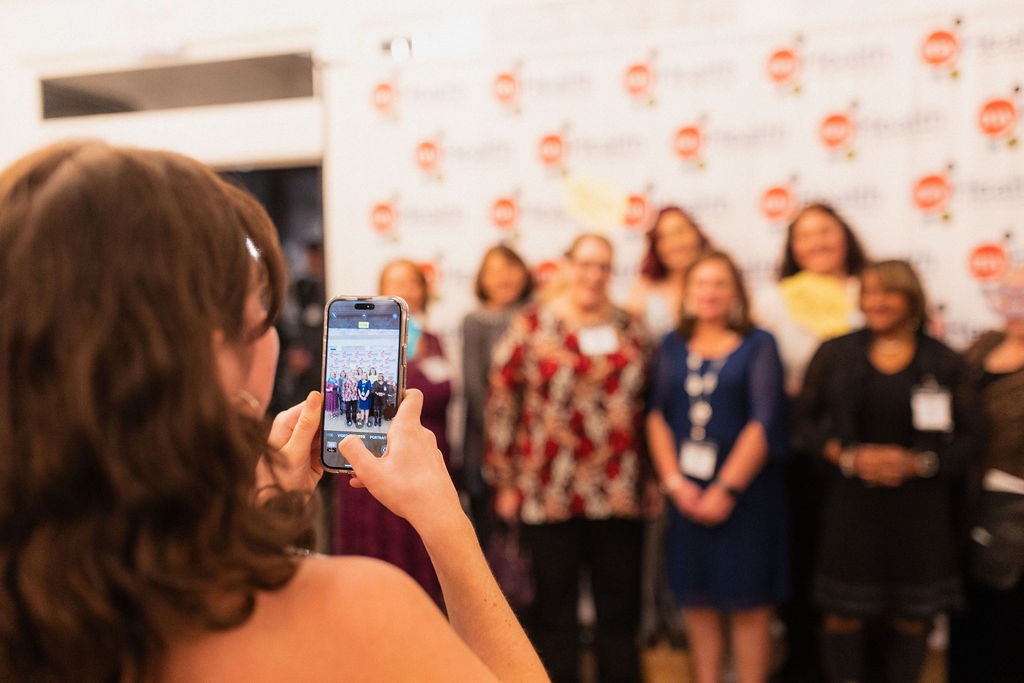
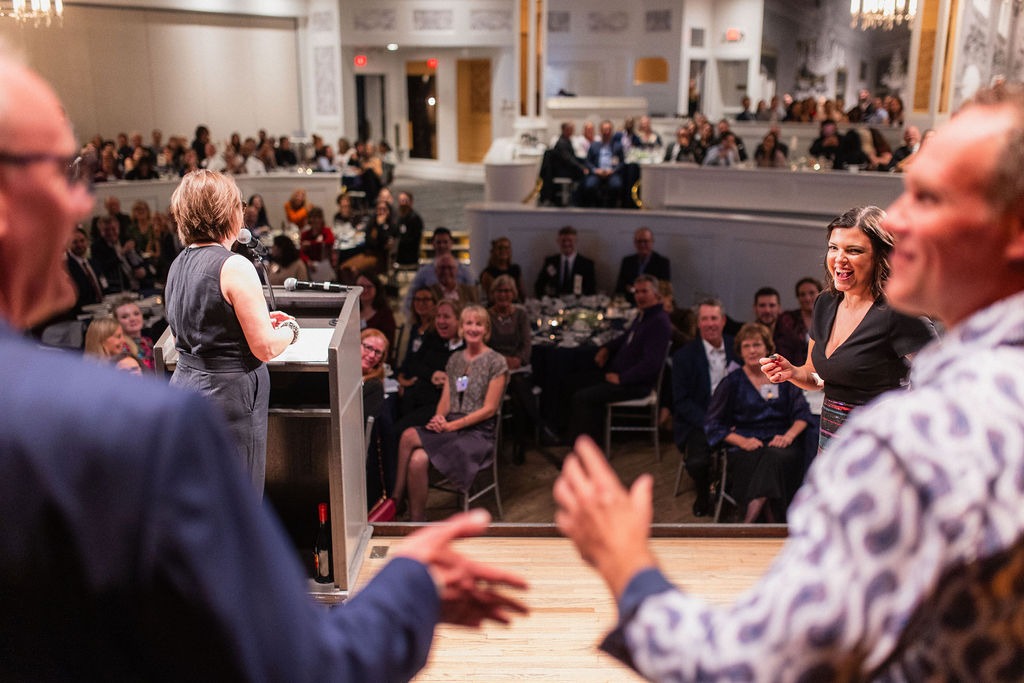
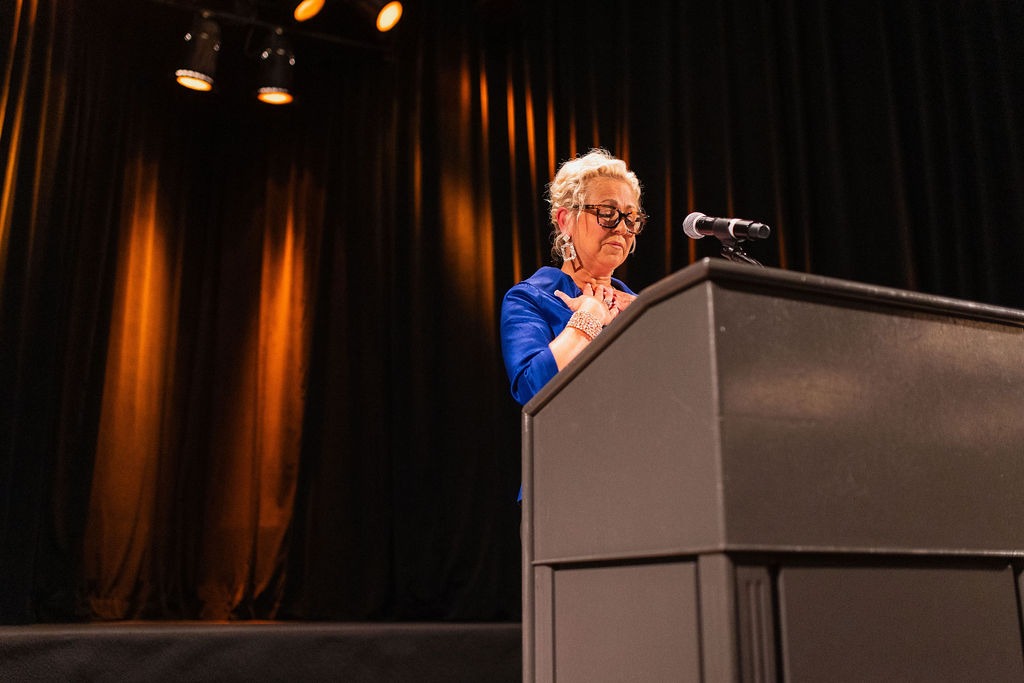

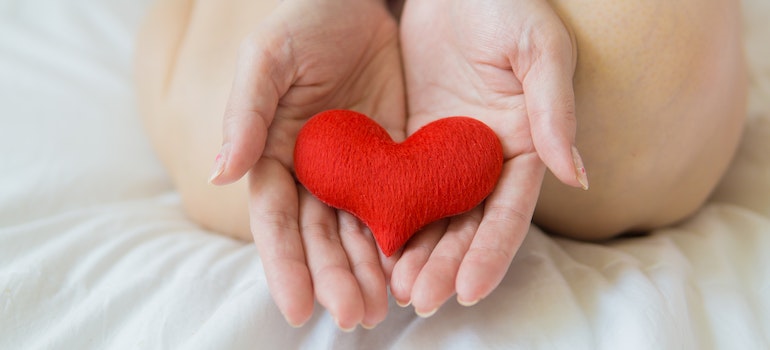
The excitement of discovery of someone’s teen years is accompanied by struggle too. There are new skills to practice, new feelings to identify, and new information to process. It’s normal to feel overwhelmed at times!
Seeking help outside can feel difficult, but it can be an important step towards reclaiming control over your inner life. Let’s look at the symptoms of poor mental health and what you and trusted people in your life can do about it.
While each person’s experience with mental health is unique, there are common signs that can help you identify struggle.
Psychological signs: Pay attention to changes in your mood, such as persistent sadness, irritability, or extreme mood swings.
Physical signs: Anxiety and depression aren’t two simple feelings: nausea, faster breathing, aches and pains, poor sleep, changes in sex drive, changes in appetite, and restlessness are all symptoms to monitor.
Changes in behavior: Difficulties in concentration, withdrawal from activities you once enjoyed, or feelings of hopelessness are warning signs that something might be wrong.

Our environment plays a significant role in shaping our mental health. Big life changes can bring feelings of uncertainty and stress:
Your struggles may stem from one of these problems or multiple problems at once. Regardless, it is okay to reach out for support for navigating your life and building coping skills to improve your mental health.
It’s also completely valid to reach out if you are experiencing none of these issues. Seeking the support of friends or professional help is not dependent on what’s happened to you. Trust your instincts and be honest about your feelings. If you are concerned, take action. Self-care can be an act of power!
Let’s face it, it can be difficult to share deeply personal feelings that are positive, much less the feelings of deep struggle that accompanies a decline in mental health. But without getting past that initial barrier of speaking about your problem, the problem rarely gets better on its own. The great news is you are not alone. There are always people who can help.
Identify trusted people in your life, such as friends, family, teachers, school counselors, or role models. Talk to them in a safe and private space.
Approach the conversation honestly, sharing how you’ve been feeling and changes to your thoughts or behavior. Bravery is required to face something scary, and being vulnerable can definitely feel scary. Starting these discussions shows your resiliance. People who care about you will respect your honesty.

While reaching out to trusted friends and family members is great, seeking support beyond your close circle may also be necessary. Finding additional support systems can offer different perspectives and resources to help you on your mental health journey.
Explore avenues such as mental health hotlines, teen clinics, online communities, and support groups for teenagers. In addition, use the resources available in your school, such as counselors and psychologists, who can provide professional guidance and assistance.
Your supportive network is your safety net that understands and empathizes with your struggles. Including trusted professionals can be an important part of that safety network.
Finding the right resources and seeking professional help is crucial for mental health. Start by exploring online platforms, mental health websites, and helplines that provide information, tools, and guidance.
But, if you need individual counseling, consider finding a qualified therapist who offers specialized support for teens. Learn about seeking professional help, from finding therapists to booking appointments, and be aware of any potential costs or insurance coverage.
Prioritizing self-care is an integral part of maintaining good mental health. Adding self-care practices into your daily routine can reduce stress, enhance resilience, and improve overall well-being. So, what can you do?
Regular physical activity, such as walking, yoga, or dancing, boosts your mood and reduces anxiety. A nutritious diet supports brain function and emotional well-being. Bolster your energy with good sleep hygiene, such as reducing screen time before bed, allowing enough time for sleep (8-10 hours for teens), keeping a consistent schedule, and avoiding large meals close to bedtime.
Practice mindfulness and relaxation techniques, such as meditation or deep breathing, to promote a sense of calm. Journaling can provide an outlet for self-expression and reflection. Engage in hobbies or activities that bring you joy and give you a sense of fulfillment.
Sometimes, you may have to set healthy boundaries and practice saying no when necessary to protect your mental and emotional energy. These coping strategies will enable you to manage stress better, build resilience, and foster a positive mindset for improved mental well-being.
Discussing mental health and seeking help as a teen is challenging but crucial for taking control of your well-being. Don’t be afraid to break the silence and find the support you need. Value yourself, stay attuned to how you truly feel, and ask for help from your loved ones and professionals when needed. Remember, seeking help is a sign of strength, and your mental health matters.

Let’s look back on the month of February and see what’s been happening at myHealth!
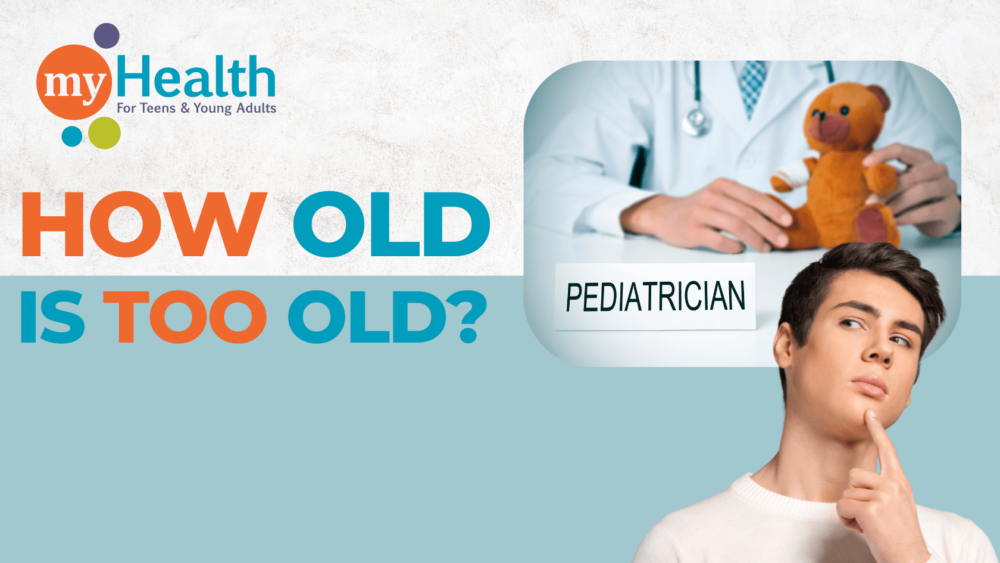
At the beginning of life, a child has their health care needs met by a parent or guardian who brings them to a pediatrician. But as they age, a child may begin to feel differently about keeping the same doctor they saw when they were a toddler.
Many pediatrician’s offices are designed to make small children feel welcome. If you’re 14 years old and surrounded by decorations and toys for someone half your age, you may feel like you’re in the wrong place!
With each stage of life comes slightly different needs. As young people age into teenagers and experience puberty, they may want to keep some conversations with their doctor confidential.
If a young person wishes to remain with their pediatrician, they usually may do so until age 21; however, many young people begin to transition away from pediatricians after puberty.
One great option for those teens is an adolescent medicine specialist like myHealth for Teens and Young Adults. Adolescent specialty clinics are equipped not only to provide a welcoming environment, but know the challenges and needs unique to young people who are making the transition to adulthood.
myHealth’s mission is to improve the health of our community by providing health services and information that support all teens and young adults in making responsible and well-informed decisions.
Here are some ways we help prepare young people for the world of adult medicine:
myHealth sees young people to ages 12 to 26. Everyone who ages out of services at myHealth is sent off with information about transitioning to adult medicine, time with a nurse, and an opportunity to apply for health insurance.
We believe in going above and beyond in the field of adolescent care. We understand that young people are trying to navigate the world on their own, and we do everything we can to make that experience not merely an effective one, but a positive one.
Just as important as giving health care to young people is preparing them to continue caring for themselves as they gain independence. myHealth is proud to be one of many clinics to share the goal of informing young people in a way that empowers them to seek the care that is right for them.
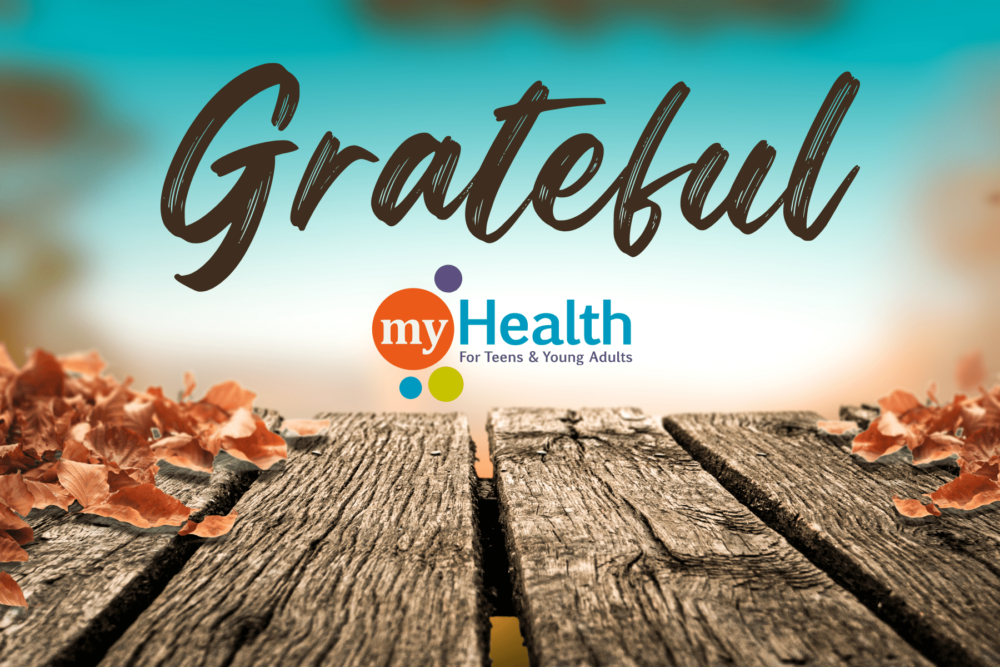
To our great Community,
As a friend of myHealth, you know the services we provide are unique and important:
Each year, myHealth provides over 1,100 clients with low-cost medical services in over 4,200 visits. Our clients consistently report we meet their needs, and they feel welcomed and respected when seeing a myHealth healthcare provider.
Annually in the community, our health educators present to more than 15,000 young people, adults working with youth, parents, and community partners and provide information on a wide variety of health topics critical to the ages we serve.
Today, our greatest challenge continues to be meeting the demand for mental health care for the young people in our community. Nationwide shortages of licensed counselors and myHealth’s inability to pay competitive wages as a stand alone non-profit has extended the wait times for new clients. To recruit and retain qualified staff members, myHealth has increased compensation, but sadly there has been no increase in insurance reimbursement rates to offset the added expense of providing care.
As we close out this year, we ask that you consider a year-end gift to support the work that we are doing in this community.
Your donation will ensure that myHealth is able to continue to support the youth who are most vulnerable, who need access to confidential reproductive healthcare, who may have nowhere else to turn for mental healthcare, and who often feel marginalized by traditional healthcare providers.
Your gift will help us to one day see that all young people will be educated and empowered to make responsible decisions regarding their health and relationships.
With gratitude on behalf of our clients,
The Staff at myHealth for Teens & Young Adults
P.S. Have you seen our very own Connie on the news? We helped get out the vote and Channel 5 wanted to learn more about it! Check out the interview below:

More times than not, people tend to feel powerless. It can be easier to think of the government as something large and beyond us. However, I tend to think differently. While at the end of the day, it is the government who can make legislative decisions, policy changes, and overall impact the way the country functions and prospers, there are individual steps that lie in the hands of constituents, that is the voters who elect the representatives both on a local and national level.
It can be difficult to know where to start. How do you become an active participant in the decisions of the lives around you? How do you find a way to make your small but mighty voice heard amidst the major news outlets and sources? How can you educate yourself on your own community and the immediate issues around you?
These are questions I don’t have all the answers to because I am learning too. Politics were never something on my radar, but during the past year, I have learned just how essential it is to understand what is going on today. Though much of what goes on within the world of politics can be foreign and completely unrelated to me individually, understanding politics and the division that exists in the United States today allows me to shape my belief systems. I have learned how valuable the vote is and that staying silent is never the answer to change.
A great place to start is to ask this question: What are the causes and subjects that matter to me? In high school I knew I was passionate about accessible reproductive healthcare. Since I attended private school, the education I received in the classroom was insufficient in many ways. I became deeply passionate about ways in which healthcare can and ought to be more accessible to everyone. When I read current news, I keep an eye out for articles related to legislation and/or opinion pieces on healthcare, so I can better understand what is happening in different states and better establish my own stance and belief.
There is so much that remains deeply puzzling to me regarding politics. It seems like everytime I scroll through recent articles or turn on a news channel, I hear about an event or a topic that is new to me. It can be easy to get overwhelmed by the volumes of information available by a single click, but I think there is encouragement in that as well. With such a wide variety of concerns pressing our nation, there is bound to be something of interest to you. There is a cause out there with your name on it, and once you find it, you will feel the call to change. The things we care about are the things we fight for.
So, where do you start? My first piece of advice to be an active constituent and voice in your community and/or on a federal level is to educate yourself. It sounds simple, but it can be extremely difficult to navigate the hundreds of news sources just for a little information on current events. When it comes to reading the news, I suggest reading multiple sources. No single source has it all, and there is a bias in most new outlets.
Outside of understanding the day to day pressing concerns, it is equally important to understand current legislation. For the state of Minnesota, you can access this link to view all of the bills moving through both the House of Representatives and the Senate. To see what is happening in Washington D.C, you can view active legislation here. Progress can feel slow, but it is happening. Every day representatives, senators, and passionate individuals are working to make change happen, even if it is behind what seems to be closed doors.
Pay attention to your own representatives. If you are unsure who your local legislators are, you can find out here. It is important to remember that the government is much more than a federal organization. It is a local body at work, influencing your everyday life.
In high school, I cared deeply about making reproductive healthcare both accessible and safe. From that interest, I began to volunteer on the Youth Advisory Board for myHealth. It was an opportunity to stimulate my passions and work alongside similarly minded youth. In college, I am a part of a school organization that works to promote sexual health education on campus.
Once you know what you are passionate about, the next step is to get involved and be outspoken. Knowing what you care about is important, but action is where things will change. Volunteer at organizations with the same passions as you, use your social media platform to raise awareness, and most importantly, take an interest because everyone is affected.
Guest post by Morgan Hausback